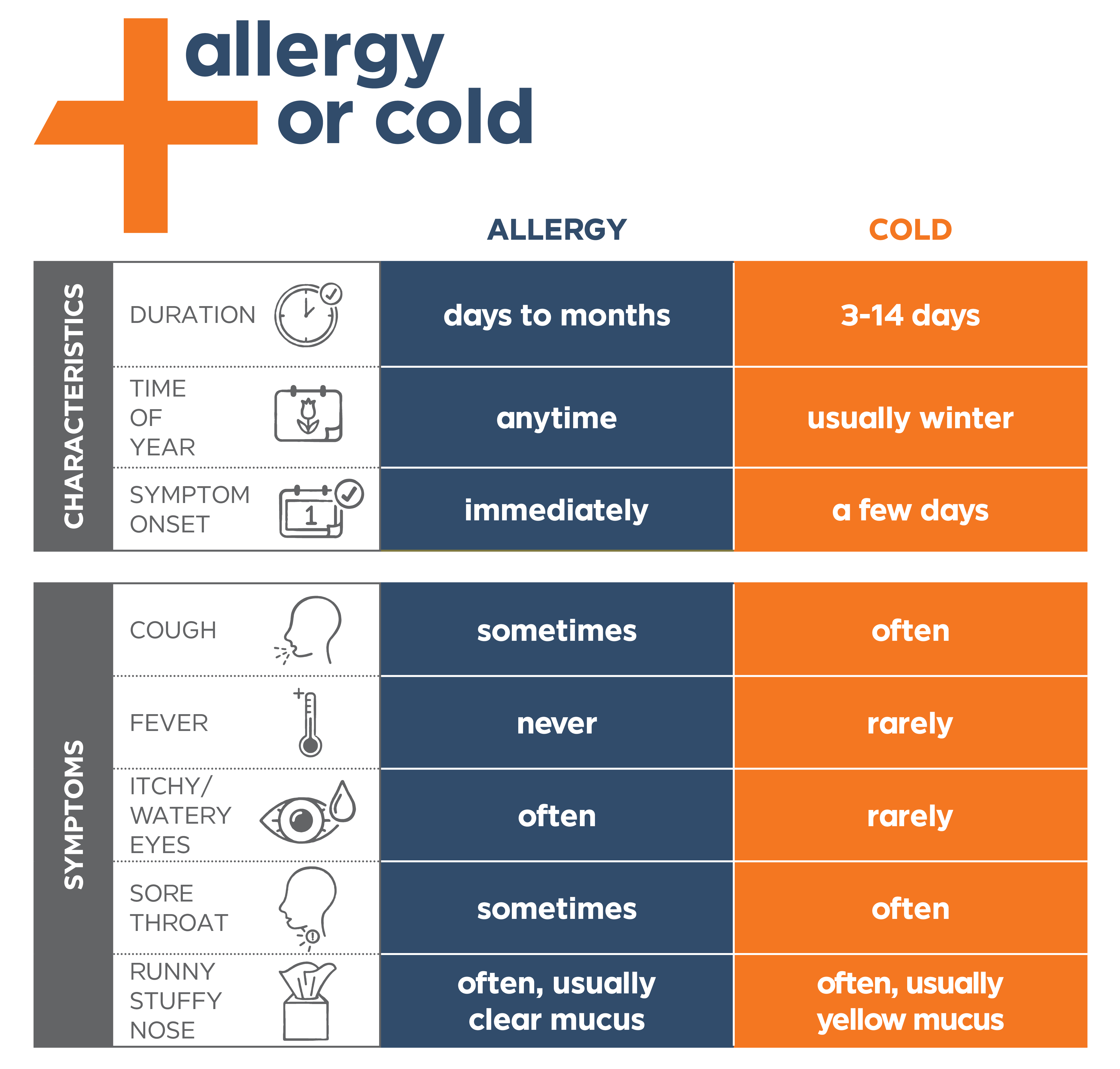What are Allergies?
Allergies start when your immune system mistakes a normal, everyday substance for a dangerous intruder in your body. Your system responds by attacking the intruder, or allergen. The body will produce histamines, which create allergy symptoms.
Allergies can range from mild to severe and can produce minor irritation or result in anaphylactic shock, a life-threatening condition.
People are allergic to a variety of substances, but there are some common triggers:
- Airborne: Pollen, animal dander, dust mites and mold.
- Insect: Bee stings.
- Medicine: Most commonly seen with penicillin and penicillin-based antibiotics.
- Skin: Latex is a common skin allergen.
- Food: Eggs, fish, milk, peanuts, shellfish, soy, tree nuts, and wheat.

Allergy Symptoms
Allergy symptoms vary depending on the severity of the allergic reaction.
Mild Symptoms
Most people experience mild allergic symptoms. If they involve the sinuses, these symptoms are often mistaken for the common cold. These symptoms include:
- Sneezing.
- Runny, stuffy nose.
- Itchy, watery eyes.
- Rashy or itchy skin.
Severe Symptoms
Severe allergic reactions should always be treated at the emergency room. A severe reaction – anaphylaxis – is a life-threatening medical emergency and can cause your body to go into shock.
Symptoms of anaphylaxis include:
- Tingling mouth.
- Swelling of lips, tongue, face, or throat.
- Chest tightness, wheezing, coughing, or shortness of breath.
- Nausea and vomiting.
- Sneezing.
- Runny, stuffy nose.
- Itchy, watery eyes.
- Rashy or itchy skin.
NOTE: If you have been diagnosed by your doctor with a life-threatening allergy and are now experiencing any of the symptoms of anaphylaxis, immediately call 911 and administer your epinephrine auto-injector (such as EpiPen®) if you have one.
Anaphylactic allergic reactions should always be treated in an ER.
Did you know? Seasonal allergies and colds have many similar symptoms and it can be tricky to tell them apart. Learn the difference between allergies and colds with our helpful infographic.

View the infographic as text
Treatment of Allergies
Although allergies generally cannot be cured, there are a number of ways to treat symptoms.
Avoid the Allergen
One of the best ways to prevent or treat allergic symptoms is to avoid the allergen. Some triggers – such as pollen – are nearly impossible to avoid. But, reducing exposure can go a long way in lessening symptoms.
For severe allergies, though, it is important to strictly avoid the allergen to which you react.
Nasal Rinse
For those with airborne allergies, rinsing with a saline solution can help keep nasal passages clear of the offending allergen.
Medications
For those with severe allergies who could potentially have an anaphylactic reaction, an epinephrine auto-injector is prescribed.
EpiPen® is a registered trademark of Mylan Inc.
